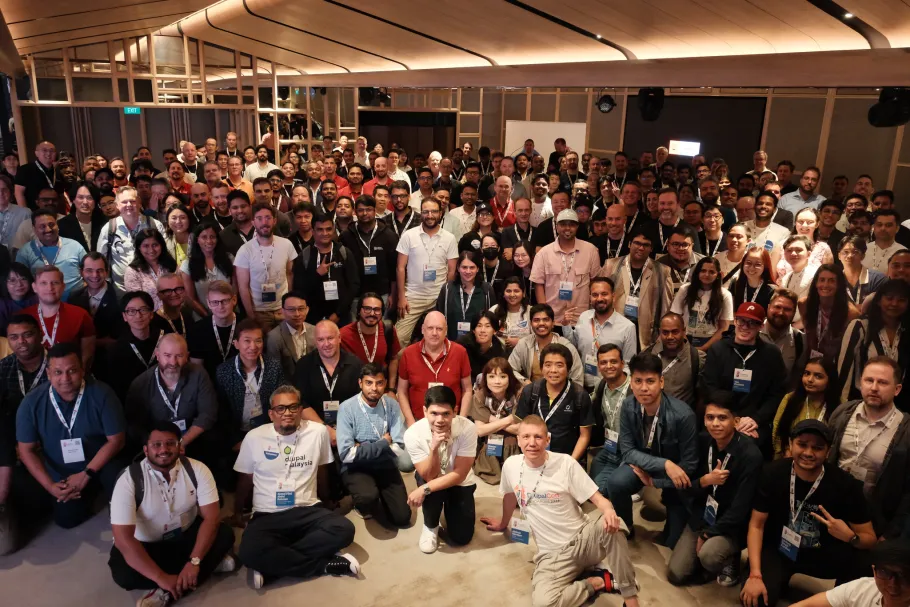
Owen LansburyCo-Founder & Chair

Drupal contribution is often considered a direct cost by agency leaders, but PreviousNext has proven that contribution is a key investment in business sustainability and profitability.
This post follows up on my recent talk at DrupalCon Singapore, where I outlined how to supercharge your business by adopting an open source business model.
PreviousNext started like most small independent agencies in 2009. We identified a gap in the Australian market for enterprise-grade services using Drupal as our core technology and started targeting large scale clients. But in adopting an open source technology, we needed to approach things very differently compared to just partnering with a large proprietary technology partner.
How would we develop the skills in the technology when there were limited training opportunities available? How would the software our business relied on be maintained and innovate? How would customers know about the technology when there was no global product marketing?
As Drupal's project founder, Dries Buytaert, outlined in his original blog post Balancing Makers and Takers to scale and sustain Open Source, we could have easily sat back as a 'Taker' and left it to other 'Makers' to sustain Drupal. In fact, that's what at least 90% of agencies who profess to provide Drupal services in Australia do. They contribute little to no code back to Drupal, only sponsor Drupal events if they can see a direct return on investment for their own business and provide little to no funding to the Drupal Association, the not-for-profit foundation that manages all of the infrastructure to maintain the Drupal project alongside a range of community and market focused initiatives.
As Dries points out in his blog post, Takers from open source projects may consider they have a competitive advantage over Makers by being able to invest the funds they would otherwise spend on contribution into areas they think helps their business' bottom line. Of course, if everyone was a Taker from Drupal, the software their businesses rely on would not innovate to keep pace with competitive products and ultimately cease to exist. Does that sound like a sustainable business strategy?
Having run PreviousNext for 16 years as a company that does contribute extensively to Drupal, I disagree with Dries' point about Takers having a competitive advantage over Makers. Our business fundamentals are testament to that, with our profits consistently quadruple and staff retention triple the industry average. We know this, because as an employee owned company we receive an independent annual valuation that benchmarks us against comparable Australian digital agencies. We are also a Top Tier Drupal Certified Partner globally, ahead of companies that are literally fifty times larger than us in terms of staff numbers and revenue.
Of course, anyone who runs their own business would want to know how much this actually costs PreviousNext? An analysis of our accounts over the past ten years reveals we have spent 4% of our gross revenue on the combined expenses of ALL direct salary costs of contribution including sponsoring a Drupal core committer, all marketing, sponsorship and Drupal Association membership fees, attendance at local and global conferences including travel and accommodation costs and all external recruitment fees. This 4% of revenue is just considered operating expenses before we declare before-tax profits that are quadruple the industry average.
Do I have your attention yet?
So how does PreviousNext achieve this and how might you apply a similar open source business model to your own company?
In the spirit of openness, if you run a Drupal services company and want to do a deeper dive into any of this, I'm always happy to chat.
PreviousNext builds open source digital platforms for large scale customers, primarily based on Drupal and hosted using Kubernetes, two of the world’s biggest open source projects. With our business reliant on the success of these open source projects, our company is committed to contributing where we can in relation to our relatively small size. We get a lot of questions about how we do this, so are happy to share our policies so that other organisations might adopt similar approaches.
For PreviousNext, the decisions to make contribution part of how we work and to become a Drupal Certified Partner (DCP) have paid off many times over, both in terms of business growth and team development.